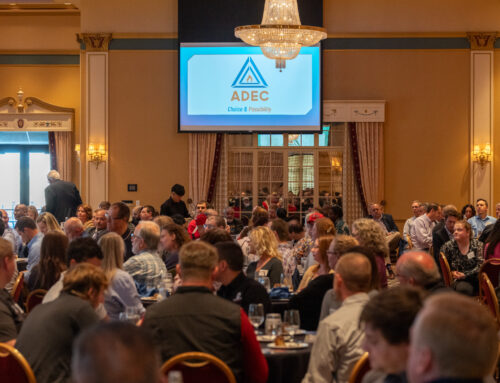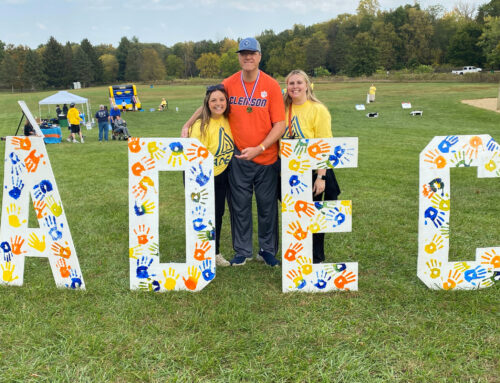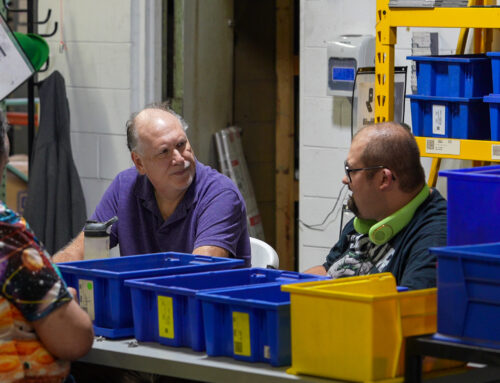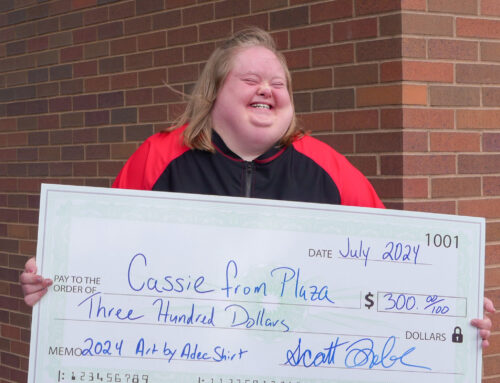“I can’t vote.”
As Elkhart County’s voter outreach coordinator stood in front of the room at Day Service at Goshen and talked about the right to vote and the process to register, a client called me over to where he was sitting and whispered: “I can’t vote.”
“Sure you can,” I told him.
But again, he insisted: “I’m not allowed to vote. I live in a group home.”
I told him that it doesn’t matter where he lives. He has a right to vote, just like anybody else.
“But I don’t have a driver’s license, so I can’t vote,” the client said.
When he learned that he doesn’t need a driver’s license – that his state-issued identification card will work just fine – his face lit up. He is now excited to participate in the 2016 general election.
Another client did not realize she could vote because she does not know how to read. She is also looking forward to voting this year now that she knows she has the right to bring a staff member with her to the polls to help her read the options.
At ADEC, we are passionate about ensuring the people we serve know their rights and how to exercise them if they so choose – including the right to vote. That is why we have teamed up with the county clerk’s office to make sure people with disabilities have the knowledge and opportunity to make their voices heard in the 2016 election.
Angie Troyer, the voter outreach coordinator who visited with ADEC clients in Goshen on Monday morning, will be talking with clients at ADEC’s four other day service sites throughout Elkhart and St. Joseph counties. She will talk about the right to vote and what to expect on election day, and she’ll also show clients the electronic ballot that they’ll find at the polls during early voting or on Election Day.
Why is this effort so important? Because only 60 percent of people with intellectual or developmental disabilities who were eligible to vote in the 2012 election registered to do so, and of those people, only 45 percent actually cast a ballot that year.
Those numbers are alarmingly low when compared to the percentage of people without a disability who registered to vote (71.5 percent) and the percentage of registered voters without a disability who turned out on election day (62.5 percent).
Donna Belusar, ADEC’s CEO and president, said she is grateful to the county for the education and outreach efforts.
“This is an incredibly important right and privilege, to be able to vote,” she said. “Individuals with disabilities have a voice and deserve to be heard. ADEC is thankful for the support from Elkhart County in helping break down barriers to the polls for people with disabilities, whether they are real or perceived.”
ADEC’s effort to make sure people with disabilities are included in the 2016 election does not stop with registration. The organization plans to help clients with absentee voting and also arrange for a special #ADECvotes day during early voting. 











